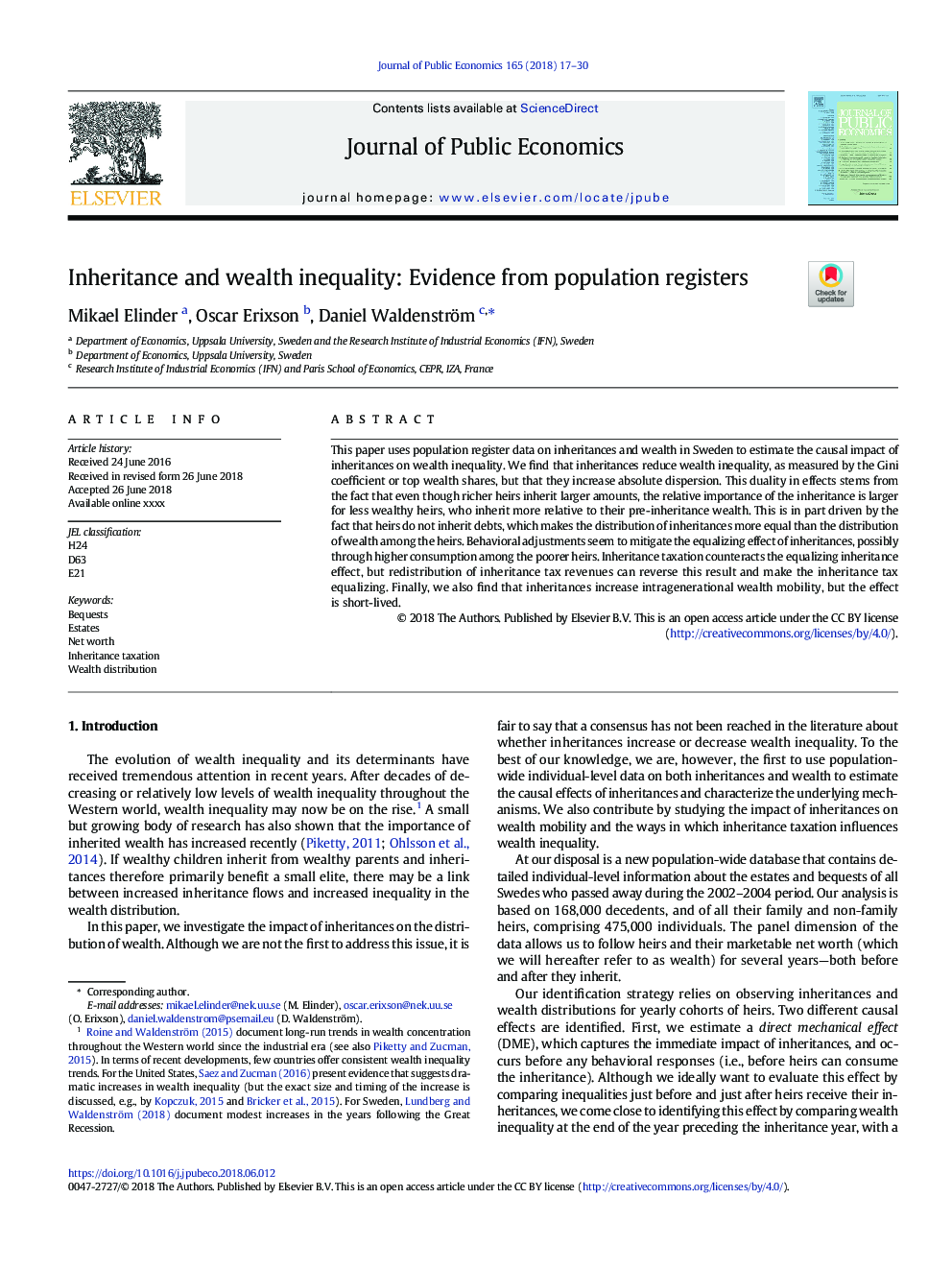| Article ID | Journal | Published Year | Pages | File Type |
|---|---|---|---|---|
| 7369251 | Journal of Public Economics | 2018 | 14 Pages |
Abstract
This paper uses population register data on inheritances and wealth in Sweden to estimate the causal impact of inheritances on wealth inequality. We find that inheritances reduce wealth inequality, as measured by the Gini coefficient or top wealth shares, but that they increase absolute dispersion. This duality in effects stems from the fact that even though richer heirs inherit larger amounts, the relative importance of the inheritance is larger for less wealthy heirs, who inherit more relative to their pre-inheritance wealth. This is in part driven by the fact that heirs do not inherit debts, which makes the distribution of inheritances more equal than the distribution of wealth among the heirs. Behavioral adjustments seem to mitigate the equalizing effect of inheritances, possibly through higher consumption among the poorer heirs. Inheritance taxation counteracts the equalizing inheritance effect, but redistribution of inheritance tax revenues can reverse this result and make the inheritance tax equalizing. Finally, we also find that inheritances increase intragenerational wealth mobility, but the effect is short-lived.
Related Topics
Social Sciences and Humanities
Economics, Econometrics and Finance
Economics and Econometrics
Authors
Mikael Elinder, Oscar Erixson, Daniel Waldenström,
